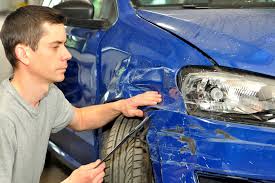In the complex world of automotive transactions, one crucial figure often remains behind the scenes yet plays a pivotal role in ensuring fairness and transparency: the kfz gutachter hamburg. These professionals possess a unique skill set that combines automotive knowledge, market expertise, and appraisal techniques to determine the value of vehicles accurately. In this article, we delve into the responsibilities, qualifications, and significance of car appraisers in today’s automotive industry.
Understanding the Role of Car Appraisers:
Car appraisers are tasked with assessing the value of vehicles for various purposes, including insurance claims, buying and selling transactions, legal matters, and financial assessments. Their evaluations are essential in determining the fair market value of a vehicle, considering factors such as its condition, mileage, age, model, make, and any modifications or damages.
Responsibilities of Car Appraisers:
- Conducting Thorough Inspections: Car appraisers meticulously inspect vehicles, both inside and out, to assess their overall condition accurately. This includes examining the exterior for any signs of damage, checking the interior for wear and tear, inspecting the engine, and assessing the functionality of key components such as the transmission, brakes, and suspension.
- Researching Market Trends: In addition to physical inspections, car appraisers stay abreast of market trends and fluctuations in vehicle values. They analyze data from various sources, including industry reports, auction results, and online marketplaces, to determine the current market value of different vehicle models.
- Preparing Detailed Reports: After completing their assessments, car appraisers compile comprehensive reports outlining their findings and valuation conclusions. These reports serve as crucial documents in automotive transactions, providing transparent and reliable information to all parties involved.
Qualifications of Car Appraisers:
Becoming a certified car appraiser requires a combination of education, training, and experience. While specific requirements may vary depending on jurisdiction and employer, common qualifications include:
- Automotive Knowledge: Car appraisers typically have a background in automotive mechanics, engineering, or a related field to understand the technical aspects of vehicle construction and operation.
- Appraisal Training: Many car appraisers undergo formal training programs or certification courses offered by recognized organizations, such as the American Society of Appraisers or the International Society of Appraisers.
- Industry Experience: Hands-on experience in the automotive industry, such as working in auto repair shops, dealerships, or insurance companies, provides valuable insights into vehicle valuation processes and market dynamics.
Significance of Car Appraisers:
The role of car appraisers is invaluable in maintaining integrity and trust within the automotive marketplace. By providing accurate and unbiased assessments of vehicle values, they help prevent disputes, ensure fair compensation in insurance claims, facilitate smooth transactions between buyers and sellers, and uphold industry standards.
In conclusion, car appraisers play a vital role in the automotive industry by accurately determining the value of vehicles and providing transparent information to all stakeholders. Their expertise and professionalism contribute to the integrity and efficiency of automotive transactions, making them indispensable figures in today’s complex automotive landscape.



